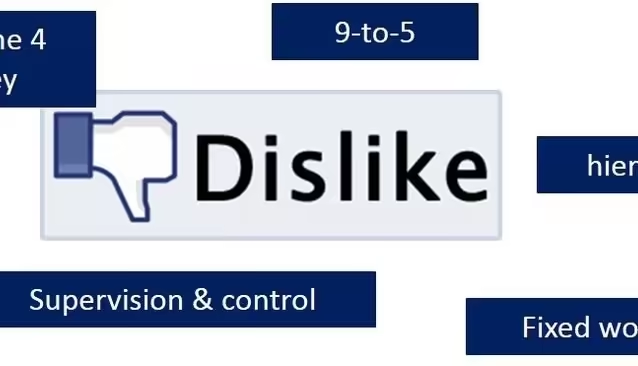As a member of generation me I thought I could perhaps set the record straight on a few things. Generation Y - also known as millennials - are those born between 1980- 2000. There has been a lot of information in the press about the characteristics, skills, benefits and disadvantages of this generation. I am tired of people going on about ‘us and them’ so isnt it time we stopped banging on about generational differences? I feel the distinction is boring, unnecessary and puts a vast amount of people in unhelpful boxes.
For many organisations, the latest trend is to identify generation Y employees, and then ‘adapt’ and market themselves to try and attract legions of 20-30 something’s. This article aims to dispel some of the myths about millennials and explain that all people generally just a) want a job and b) want to keep it for as long as they can.
I feel that generational differences are becoming exaggerated and it’s about time employers focus on similarities rather than differences between groups. So here are seven reasons why millennials expectations at work are not so different from the rest of the workforce.
- Expecting timely feedback is not unique to millennials. Generation Y individuals are reported to be reassurance craving, attention seekers who are constantly seeking feedback. This seems to be an exaggerated claim and in fact something that the majority of individuals seek, regardless of age group. Anyone who works needs to seek information that will help them to improve and this includes asking for accurate and efficient feedback on performance. This cannot be a characteristic reserved for 20 and 30-year-olds alone?
- Lifetime employment has passed many are faced with looking for jobs frequently. Many job seekers are facing unstable employment prospects, long term employment is no longer applicable to all. The labour market has changed and these changes have been due to downsizing, mergers, acquisitions and technological advances in society. Organisations are increasingly turning to contract and interim employees to work on short-term projects. A research study by Mckinsey (2016) estimates between 20-30% of individuals are engaging in short-term, project-based, independent work. So for many people searching for new roles is a more frequent occurrence and this is regardless of age group.
- Millennials are not the only ones embracing social media. Those born in the 80s and 90s are supposed to be digital natives, so social that we were almost born with a mobile phone in our hands. Yes Generation Y do embrace social networks like Twitter and Facebook but these networks are becoming widely used by many sections of the population. According to an OFCOM research study in 2013, 35% of 55- 64 year olds have an online profile and this had grown from the previous year by 9%. Thus this belief that social networking and embracing social media is only for the young is not showing the bigger picture.
- It’s not just Generation Y who are achievement orientated. Apparently some credit millennials with being ‘achievement orientated’, in other words, wanting and striving to achieve goals and ambitions. One explanation to this is because our parents are trying to live their lack of achievement through their us, their children. Yes, there is a higher proportion of individuals in Generation Y who have obtained degrees but this is because of what the parents and society has instilled. I am quite sure that baby boomers and Generation X are achievement orientated too because they have taught their children to be.
- Work-life balance is for everyone, not just the ‘young’. Going to work and having enough time to enjoy family and other activities is what many people want. This is not just something that is a characteristic of individuals from one generation. With the increase of dual-income households work-life balance is something needed by many to juggle differing commitments. Research by Sullivan in 1996 found that those in Generation X (those born between the 1960s and 1980s) were more concerned with work -life balance compared to their baby boomer (post-war babies) counterparts.
- Generation Y are not the only ones that have a feeling of entitlement. After years of studying, working and toiling many people feel that they deserve a role that matches their experience. Searching for the perfect job on the perfect salary is something that isn’t just reserved for those born between 1980 and 2000. Many individuals born within these years have been faced with highly turbulent economic markets, including recessions, rapid political and social changes. With 16-24 year -olds in 2011, facing unemployment levels of over 16% which has now reduced to just over 11%, some may be left feeling a sense of injustice.
- Career Advancement- Some people are happy with staying in the same role for many years. Others are more comfortable with pushing boundaries. These differences have less to do with age groups but more to do with personality and situational preferences. A research study by Penna - a HR consultancy - found that becoming a manager is not a long-term ambition of Generation Y. The study surveyed 1000 senior managers and 1000 employees aged between 18 and 34.
Conclusion
This article has highlighted that apparent differences in generations maybe over engineered. The rhetoric does not take account of cross-cultural differences and the extent to which Generation Y assumptions are applicable to a more globalised diverse workforce.
Individuals want recognition, fair pay and appreciation at work and I would assume this goes for the majority, young and old. By over using the generational rhetoric many individuals may miss the point. Nurturing, engaging and encouraging as many people as possible should be an organisations main aim. Individuals should be judged on their own merits and not what age group they happen to belong to.

